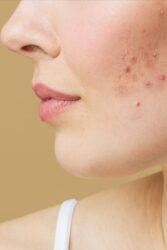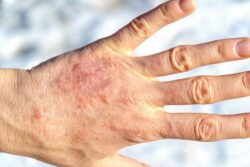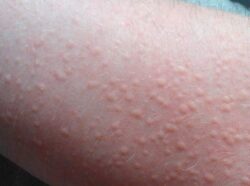“The Hidden Link Between Stress and Skin Health: Causes, Effects, and Solutions”
How Stress Affects Your Skin and What You Can Do About It:
Your skin is a mirror reflecting your physical and emotional health, and stress can significantly impact its condition. Have you ever noticed breakouts or dullness during challenging times? That’s not a coincidence. Stress triggers internal changes that show up on your skin, leaving it prone to acne, dryness, or even premature aging. In this article, we’ll dive into the connection between stress and your skin while exploring actionable tips to manage the effects and maintain a radiant complexion.
Understanding Stress and Its Impact on Skin:
What Is Stress?
Stress is a natural response to challenges, threats, or changes in your environment. It can be short-term (acute stress) or long-term (chronic stress). While acute stress can occasionally boost your performance, chronic stress disrupts your body’s balance, causing physical, emotional, and skin-related issues.
How Stress Affects the Skin:
When you’re stressed, your body releases hormones like cortisol and adrenaline. These hormones prepare you to respond to threats but can wreak havoc when levels remain elevated for a long time. Cortisol, in particular, stimulates oil production in the skin, which can clog pores and lead to breakouts. Chronic stress also weakens your skin’s barrier function, reducing its ability to retain moisture and fight off environmental irritants. The result? Dry, irritated, and inflamed skin.
Common Skin Problems Linked to Stress:
Stress affects everyone differently, but certain skin issues are universally tied to its impact. Here are the most common stress-related skin concerns:
Acne:
Stress increases the production of sebum (oil) in your skin, which combines with dead skin cells and bacteria to clog pores. This often leads to acne flare-ups, especially in people who are already prone to breakouts.

Psoriasis and Eczema:
Stress is a major trigger for inflammatory conditions like psoriasis and eczema. It worsens symptoms such as redness, itching, and flaky patches, making these conditions harder to manage.

Hives and Rashes :
During stressful periods, your immune system may go into overdrive, causing allergic reactions or hives. Stress can also aggravate existing sensitivities, resulting in itchy, red rashes.

Premature Aging:
Chronic stress speeds up the breakdown of collagen and elastin—proteins that keep your skin firm and youthful. Over time, this leads to fine lines, wrinkles, and sagging skin.

Symptoms of Stress-Affected Skin:
Stress manifests on your skin in both physical and behavioral ways. Some physical symptoms include dryness, redness, dullness, and breakouts. You might also notice behavioral changes like increased skin-picking or scratching, which can worsen existing conditions or create new ones.
How to Protect Your Skin from Stress:
Adopt a Stress-Reducing Skincare Routine:
Your skincare routine can act as a barrier against stress-related damage. Start with a gentle cleanser to prevent over-drying, and follow up with a hydrating moisturizer to restore your skin’s balance. Consider using products with calming ingredients like aloe vera, niacinamide, or chamomile to reduce inflammation.
Sunscreen is non-negotiable, as stress can make your skin more sensitive to UV rays. Additionally, treat your skin to a weekly hydrating mask to replenish lost moisture and soothe irritation.
Incorporate Mindful Habits:
Mindfulness and stress management go hand in hand. Activities like meditation, yoga, or deep breathing exercises can reduce cortisol levels and prevent stress from taking a toll on your skin. Even dedicating 10 minutes daily to mindfulness practices can lead to visible improvements over time.
Get Quality Sleep:
Stress often disrupts sleep, which is vital for skin repair and regeneration. Poor sleep can lead to puffiness, dark circles, and a dull complexion. Aim for 7–9 hours of sleep per night to give your skin the rest it needs. To promote better sleep, establish a calming bedtime routine, such as sipping herbal tea or using lavender essential oil.
Nourishing Your Skin Through Diet and Hydration:
Foods That Help:
Eating the right foods can boost your skin’s resilience to stress. Include antioxidant-rich fruits like blueberries and oranges, which combat damage caused by free radicals. Omega-3 fatty acids in salmon, walnuts, and flaxseeds help reduce inflammation and strengthen your skin’s barrier.
Foods to Avoid:
Limit your intake of sugary and processed foods, as they can worsen inflammation and contribute to acne. Instead, opt for whole grains, lean proteins, and fresh vegetables, which support overall skin health.
Stay Hydrated :
Dehydration exacerbates the effects of stress on your skin, leading to dryness and dullness. Drink at least 8–10 glasses of water daily, and supplement with herbal teas like chamomile or green tea for extra hydration and stress relief.
When to Seek Professional Help:
Consulting a Dermatologist:
If stress-induced skin problems persist despite your efforts, it may be time to consult a dermatologist. They can assess your skin’s condition and recommend tailored treatments, such as topical creams, oral medications, or advanced therapies.
Professional Treatments:
Modern skincare treatments like hydrating facials, chemical peels, and laser therapy can reverse the damage caused by stress. These treatments improve skin texture, reduce redness, and restore a youthful glow.
Lifestyle Changes to Combat Stress:
Exercise for Better Skin:
Physical activity is one of the best ways to manage stress and improve your skin. Exercise boosts blood circulation, which delivers oxygen and nutrients to your skin cells. Activities like jogging, yoga, or swimming not only reduce cortisol levels but also give your skin a natural, post-workout glow.
Create a Balanced Routine:
A balanced lifestyle is key to reducing stress and its effects on your skin. Prioritize self-care by setting boundaries, scheduling downtime, and engaging in hobbies you enjoy. Small, consistent changes can make a big difference in your skin’s health over time.
Long-Term Benefits of Stress Management for Your Skin:
Managing stress effectively yields lasting benefits for your skin. Over time, you’ll notice a brighter complexion, fewer breakouts, and improved texture. Beyond aesthetics, stress management enhances your overall well-being, leading to better physical and emotional health.
Conclusion:
Stress may be a part of life, but its effects on your skin don’t have to be. By understanding how stress impacts your skin and taking proactive steps to manage it, you can maintain a glowing complexion and healthier skin for years to come. Incorporate a consistent skincare routine, practice mindfulness, and prioritize a balanced lifestyle to combat stress and its effects.
FAQs:
- Can stress permanently damage your skin? While stress can cause temporary damage, consistent care and stress management can help your skin recover and prevent long-term effects.
- How quickly does stress affect your skin?
Stress can impact your skin within days, causing breakouts, dryness, or inflammation. Chronic stress, however, has more lasting consequences.
3.Are there skincare products for stress-related issues?
Yes, products containing calming ingredients like aloe vera, niacinamide, and chamomile are excellent for reducing stress-induced irritation.
4.How does exercise help reduce stress-related skin problems?
Exercise boosts circulation, reduces cortisol levels, and promotes skin cell repair, helping your skin recover from stress damage.
5.Can mindfulness techniques improve skin health?
Absolutely! Practices like meditation and deep breathing lower cortisol levels, reducing inflammation and improving your skin’s overall appearance.


